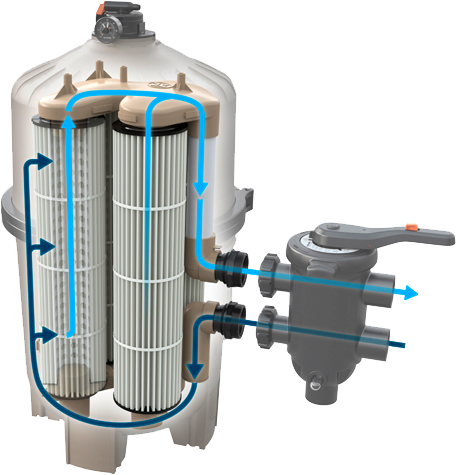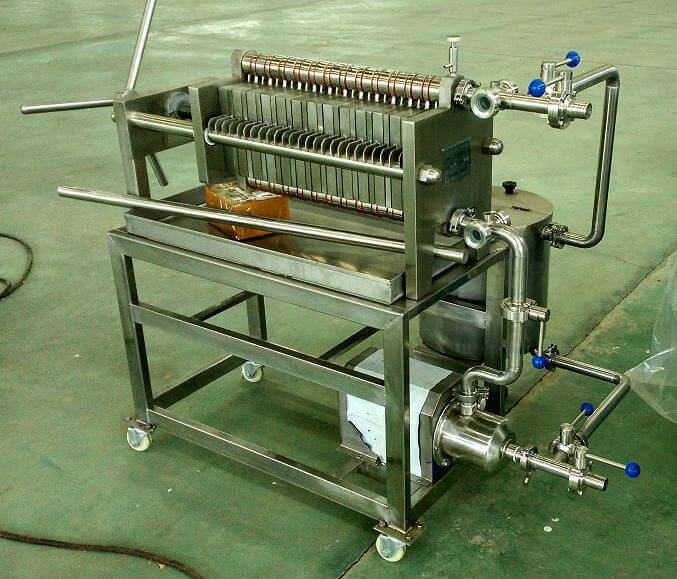Why Diatomaceous Earth Filtering Is the Preferred Choice for Many Water Systems
Why Diatomaceous Earth Filtering Is the Preferred Choice for Many Water Systems
Blog Article
Diatomaceous Planet Filtering: A Natural Option for Superior Water Purification

Diatomaceous Planet (DE) filtering system has actually emerged as a compelling method for improving water purification, utilizing the one-of-a-kind residential properties of fossilized diatoms. As problems over water quality intensify, understanding the benefits and sensible applications of DE filtering system ends up being significantly pertinent.

What Is Diatomaceous Earth?
Diatomaceous planet (DE) is a normally taking place, soft, stratified rock that is composed mostly of the fossilized remains of tiny aquatic organisms referred to as diatoms. These single-celled algae possess an one-of-a-kind, silica-based cell wall that adds to the distinct residential properties of DE. The rock is generally light and porous, permitting it to soak up different materials effectively.

As a result of its high porosity and absorptive ability, DE serves numerous applications, including its usage in farming, insect control, and, significantly, water purification. The efficiency of diatomaceous earth in filtering is credited to its capacity to catch and eliminate pollutants from water, making it an increasingly preferred selection among those seeking all-natural filtering remedies. Its environment-friendly nature and adaptability further improve its allure across various industries.
How Diatomaceous Earth Filtering Functions
The unique structure of diatomaceous earth (DE) allows it to function as an effective filtering medium in water filtration systems (diatomaceous earth filtering). Composed of the fossilized remains of little, aquatic organisms understood as diatoms, DE possesses a permeable and highly absorptive nature. This detailed framework allows DE to catch pollutants and impurities as water moves with it, properly getting rid of particles as little as 1 micron
When water is passed through a DE filter, the liquid runs into a network of tiny pores that capture suspended solids, bacteria, and various other unwanted products. The purification process happens because of both mechanical and electrostatic interactions, where bigger particles are literally entraped within the DE's matrix, while smaller bits may stick to the surface due to charged interactions.
Furthermore, DE can be used in conjunction with various other filtration approaches to enhance overall efficiency. As water continues to stream through the DE layer, it progressively ends up being more clear and cleaner, showcasing the medium's capability to improve water top quality without the demand for rough chemicals. This natural filtering process highlights diatomaceous planet's role as a sustainable and reliable service for water purification.
Advantages of Diatomaceous Planet Filtering
Efficiency in water purification is dramatically boosted through making use of diatomaceous planet (DE) filtering, supplying many advantages that make it a favored choice for several applications. One of the key advantages of DE filtering system is its capacity to remove a vast array of pollutants, including tiny organisms, sediments, and also certain chemicals. This capability makes certain that the water cleansed via this method is not only clean yet additionally safe for intake.
Additionally, DE filters have a high flow price, which allows for quicker filtration contrasted to typical techniques. This characteristic is especially helpful for large-scale procedures such as local water therapy plants or swimming pools. Making use of DE likewise minimizes the demand for extreme chemical ingredients, advertising a much more environmentally friendly method to water filtration.
Furthermore, DE filtering systems are fairly easy to keep, needing less frequent substitute than other filtration media. The natural origin of diatomaceous earth adds to its sustainability, making it an eco-conscious option. Overall, the combination of performance, performance, and environmental benefits positions diatomaceous earth filtering as a leading solution in the world of water purification.
Contrast With Standard Water Filters
When examining water purification methods, diatomaceous earth filtering system stands apart in contrast to traditional water filters. Traditional water filters, such as triggered carbon or ceramic filters, primarily focus on removing pollutants via adsorption or physical obstacles. While these methods are effective additional resources for certain pollutants, they might not record smaller sized particles, germs, or viruses as effectively as diatomaceous planet (DE) filters.
Diatomaceous earth filtering system utilizes the unique framework of diatomite, composed of tiny, porous fossilized algae. This enables DE filters to trap particles as little as 1 micron, offering remarkable filtration capacities. In addition, DE filters can handle bigger quantities of water without substantial pressure loss, making them ideal for both domestic and industrial applications.
In addition, diatomaceous planet is a natural and lasting material, posing less environmental problems contrasted to some synthetic filter media. On the other hand, standard filters usually require normal replacement and disposal, bring about boosted waste.
Applications and Use Instances
Diatomaceous earth (DE) filtering has a diverse variety of applications across various industries as a result of its reliable filtration capacities. One of one of the most prominent uses DE is in the food and drink sector, where it functions as a purification medium for juice, beer, and a glass of wine manufacturing. Its permeable framework efficiently eliminates pollutants, making sure a palatable and clear the original source final item.
In the realm of swimming pool maintenance, DE filters are favored for their capacity to catch fine fragments, providing premium water clarity compared to typical sand filters. Furthermore, DE is made use of in metropolitan water treatment centers, where it assists in the removal of put on hold solids, germs, and various other pollutants, adding to risk-free drinking water.

Beyond water purification, diatomaceous planet discovers applications in the farming field as a natural chemical and soil amendment, promoting healthier crops while decreasing chemical use. Its absorbent homes make it valuable in numerous commercial processes, including oil spill clean-ups and as a filler in construction materials. Overall, the adaptability of diatomaceous planet filtering system placements it as a valuable remedy for boosting water top quality throughout multiple domain names.
Conclusion
Diatomaceous earth filtering system stands for a reliable and lasting method for water filtration. As understanding of Learn More Here water top quality problems grows, the fostering of diatomaceous earth filters in numerous applications is most likely to enhance, adding to boosted public health and environmental preservation.
Diatomaceous Planet (DE) filtering system has actually arised as a compelling technique for improving water purification, making use of the special residential properties of fossilized diatoms. As water continues to stream with the DE layer, it progressively ends up being more clear and cleaner, showcasing the tool's capability to enhance water top quality without the demand for rough chemicals.Effectiveness in water purification is substantially enhanced with the usage of diatomaceous planet (DE) filtering, supplying numerous benefits that make it a recommended selection for several applications.When examining water filtration methods, diatomaceous planet filtering stands out in contrast to standard water filters. Traditional water filters, such as activated carbon or ceramic filters, mainly concentrate on getting rid of impurities via adsorption or physical barriers.
Report this page